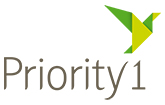Our School and Workplace Financial Literacy Program
Our Free online Financial Literacy School Student Session
Helping school students develop financial life skills’
Now more than ever, it’s vital to educate our younger generation and help them establish good habits and responsible attitudes towards money from an early age.
Helping children understand financial concepts, such as budgeting and saving, will equip them with the knowledge to make informed choices about their financial future down the track.
This video, designed to fit comfortable in a single lesson is aimed at improving the financial wellbeing of students, by empowering them to take control of their money and future financial security.
This video is primarily aimed for students 15 years plus. For younger students we recommend schools use https://banqer.co/au/
We cover topics including;
1. YOUR FIRST CAR Things to consider when purchasing your first car, to ensure you make an informed decision.
2. YOUR FIRST JOB Your rights at work and understanding pay slips including tax and super.
3. STUDYING As students move forward into university or TAFE, there are certain financial benefits that they can receive. This chapter explores what these are and which ones students may qualify for.
4. SAVING How to save and the concept of earning interest.
5. ONLINE TRANSACTIONS Tips to ensure students remain savvy and protected online.
6. MOBILE PHONES Different types of mobile phone contracts and the considerations that come with each.
7. CREDIT CARDS Credit, debt, credit ratings and the dangers of credit cards.
8. GAMBLING Have an understanding of the danger this presents young people.
Workplace financial literacy and education is a passion of ours.
Dr June Smith, Lead Ombudsman, Investments and Advice.
Financial Ombudsman Service Australia (now the Australian Financial Complaints Authority)
Research into happiness and wellbeing showed some of the following results:
- 35 per cent of Australians report having a significant level of distress in their lives;
- 26 per cent of Australians report above normal levels of anxiety symptoms;
- 26 per cent of Australians report having moderate to extremely severe levels of depression symptoms; and
- In 2015, anxiety symptoms were the highest they have been in the five years of the survey.
49 per cent of these people rated personal finances as the number one cause
Also, people who report higher levels of anxiety and depression symptoms and distress are more likely to gamble, smoke cigarettes, drink alcohol and take recreational drugs:
- Of those reporting extremely severe levels of depression symptoms, 57 per cent drink alcohol, 46 per cent gamble, 41 per cent smoke cigarettes and 38 per cent take recreational drugs to manage stress; and
- Of those reporting extremely severe levels of anxiety symptoms, 66 per cent drink alcohol, 54 per cent gamble, 47 per cent take recreational drugs and 45 per cent smoke cigarettes to manage stress.
We also know that good independent financial advice leads to:
- 13% greater levels of happiness
- 21% more peace of mind
- 20% increased feeling of security;
- 19% less likely to have arguments with loved ones about money
- 21% less likely to have personal relationships impacted by money concerns
Financial planning and health
Without a plan:
- 11% more likely to be concerned about finances
- 15% feel stress and anxiety associated with financial matters
- 22% more likely to have sleep disrupted
- 17% feel money contributed to health issues
We know that getting your financial house in order is one area to lead to overall happiness.
For businesses this is valuable investment
Worksite health and wellbeing promotion programs found on average programs:
- decrease sick leave absenteeism by 25.3%
- decrease worker’s compensation costs by 40.7%
- decrease disability management costs by 24.2%; and
- save $5.81 for every $1 invested in employee health and wellbeing
Our Financial Literacy Education Programs
Financial literacy is having an understanding of money and finances and being able to apply that knowledge to make effective decisions.
We believe the more people understand about the options they have, the better decisions they will make.
We provide seminars to a variety of groups including workplaces and community groups.
Our seminars can be tailored to suits your needs, they can involve an understanding of:
- a person’s own values and priorities;
- budgeting, why we need to save and how to manage money;
- managing your debts;
- superannuation and retirement planning;
- investment and wealth creation choices;
- where to go for advice and additional information, guidance and support;
- the importance of insurance and protecting against risk and passing on your assets to loved ones.
As Priority1 is completely independent, our seminars are 100% focused on strategy education.
If you would like to be included in our seminar schedule, please contact Priority1 on 03 9725 9078 or info@priority1.net.au
